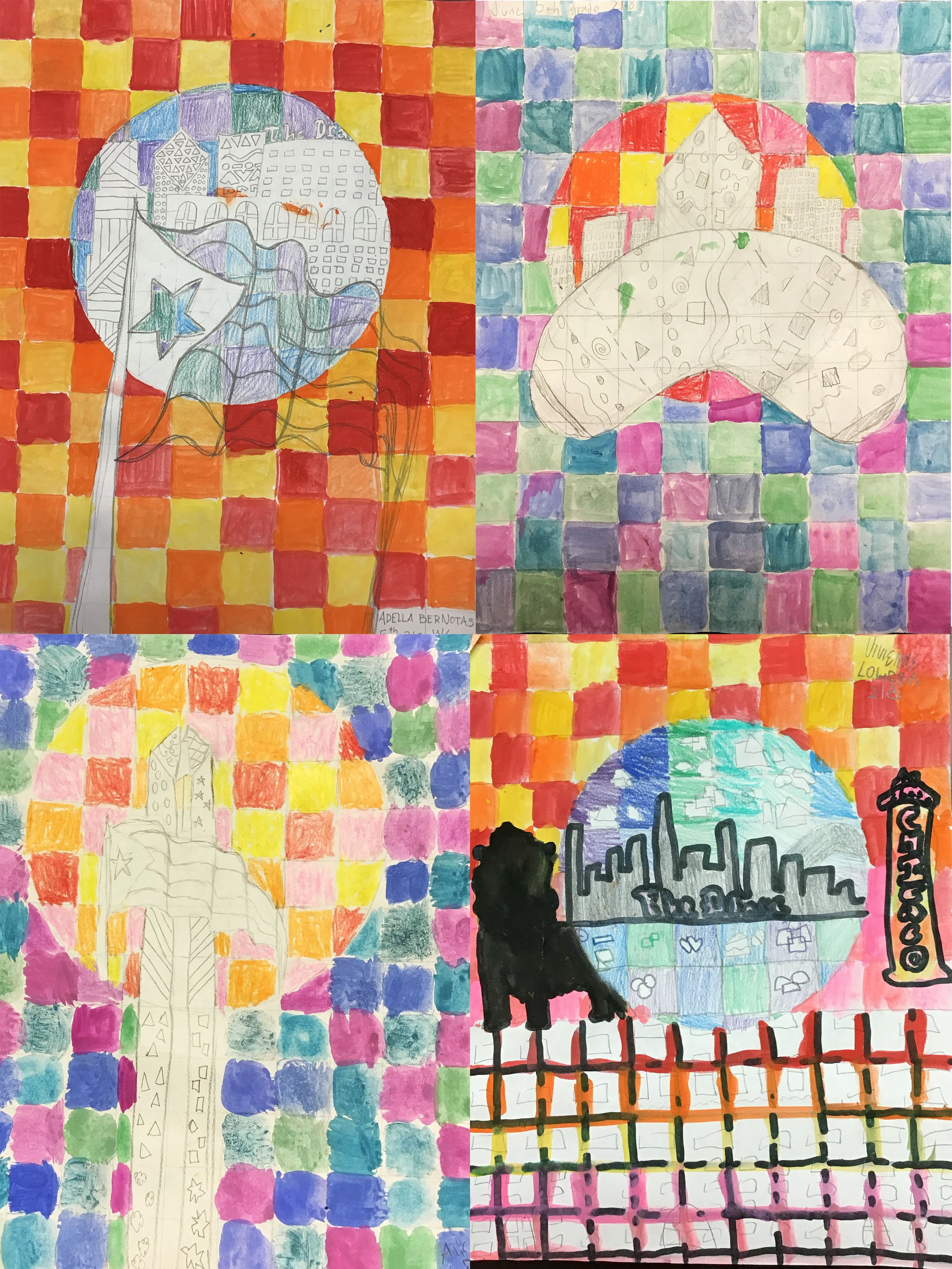

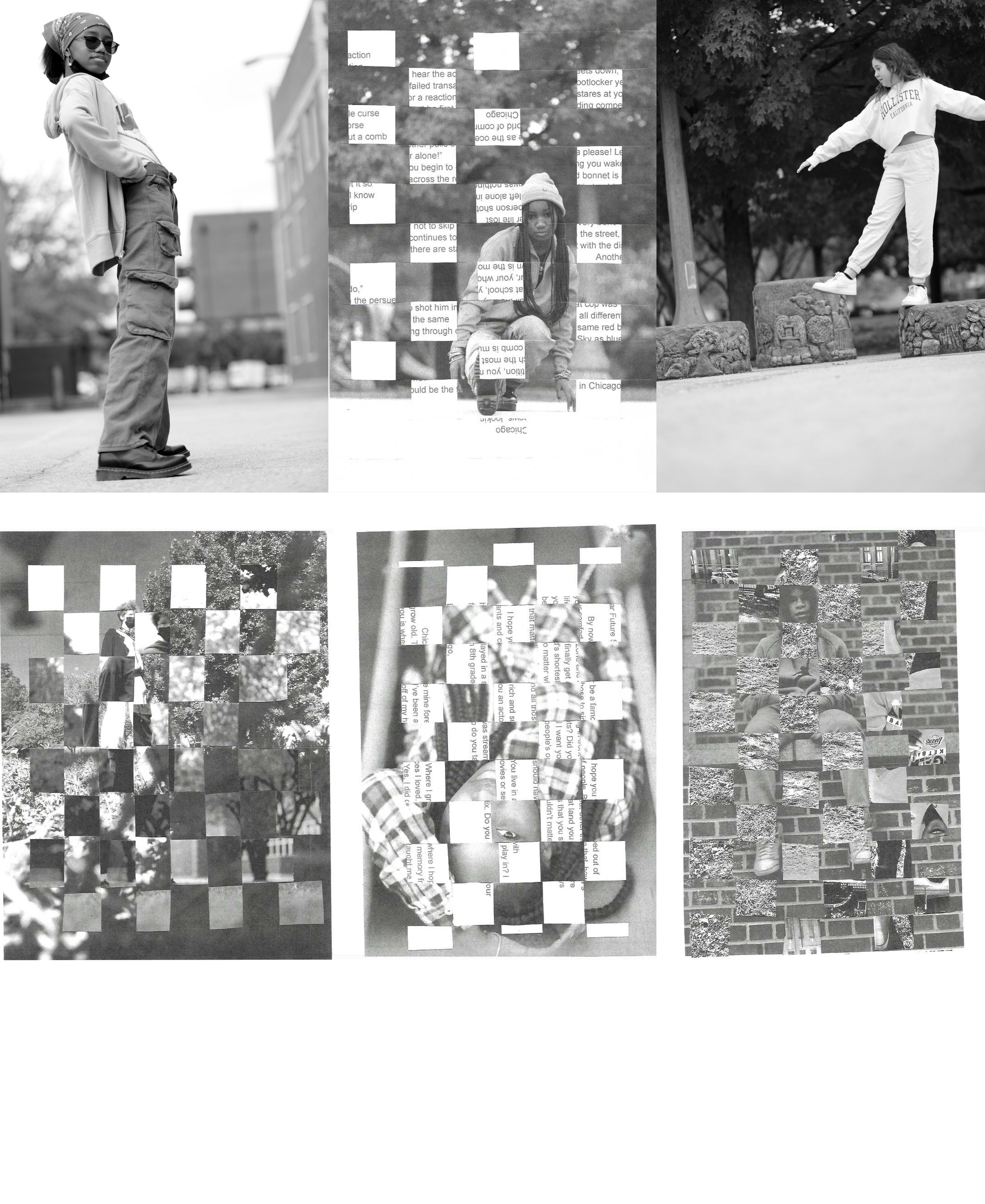
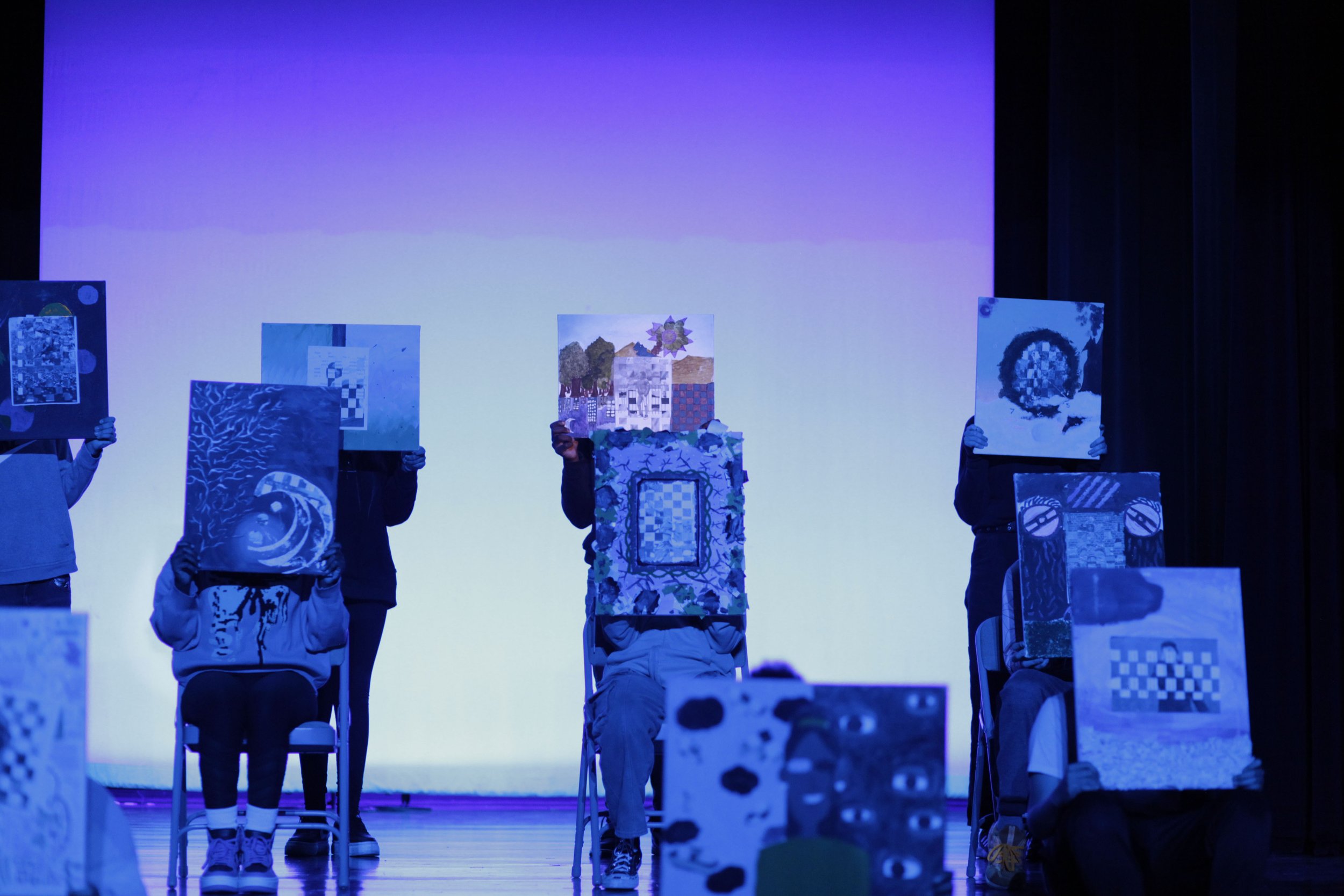




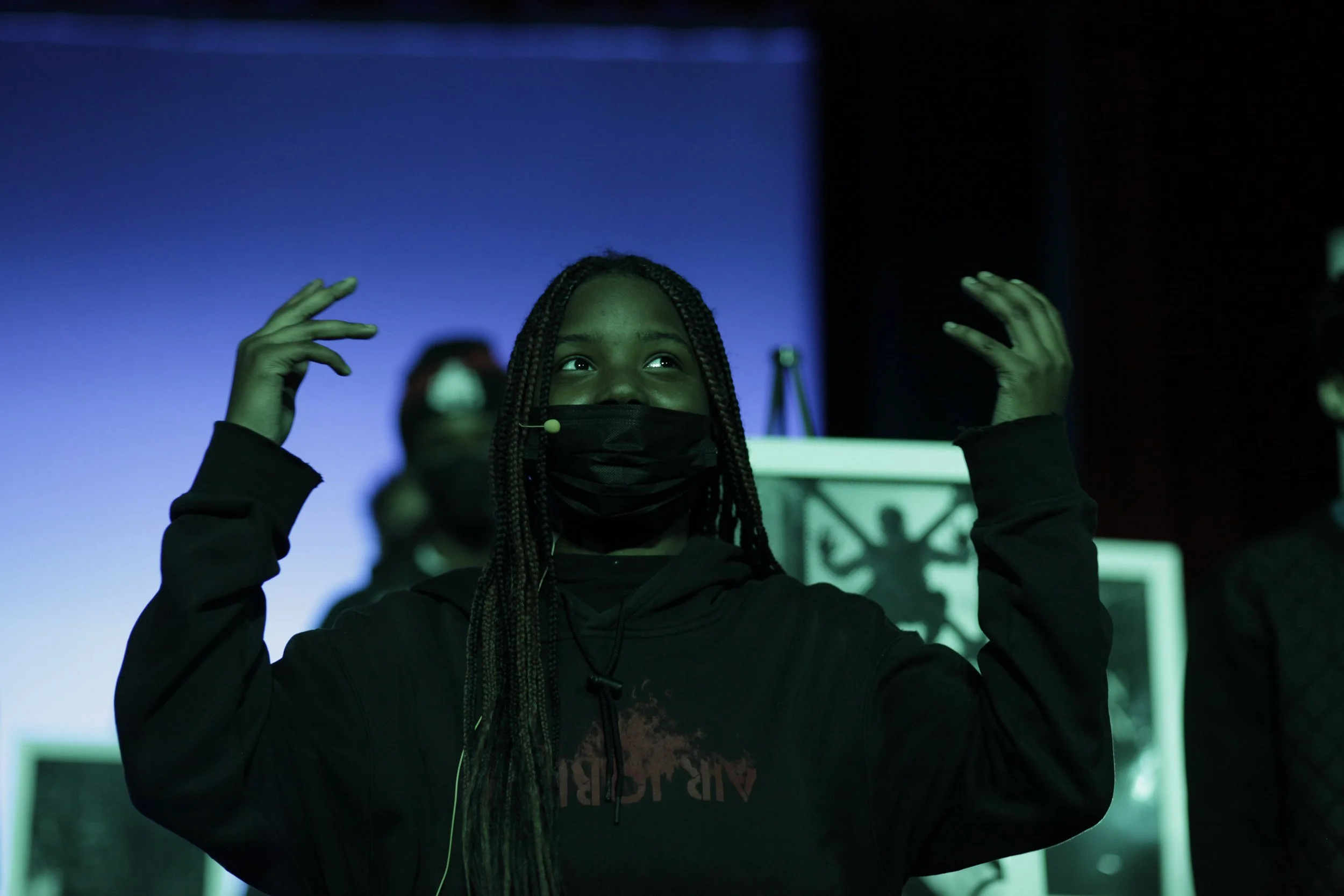









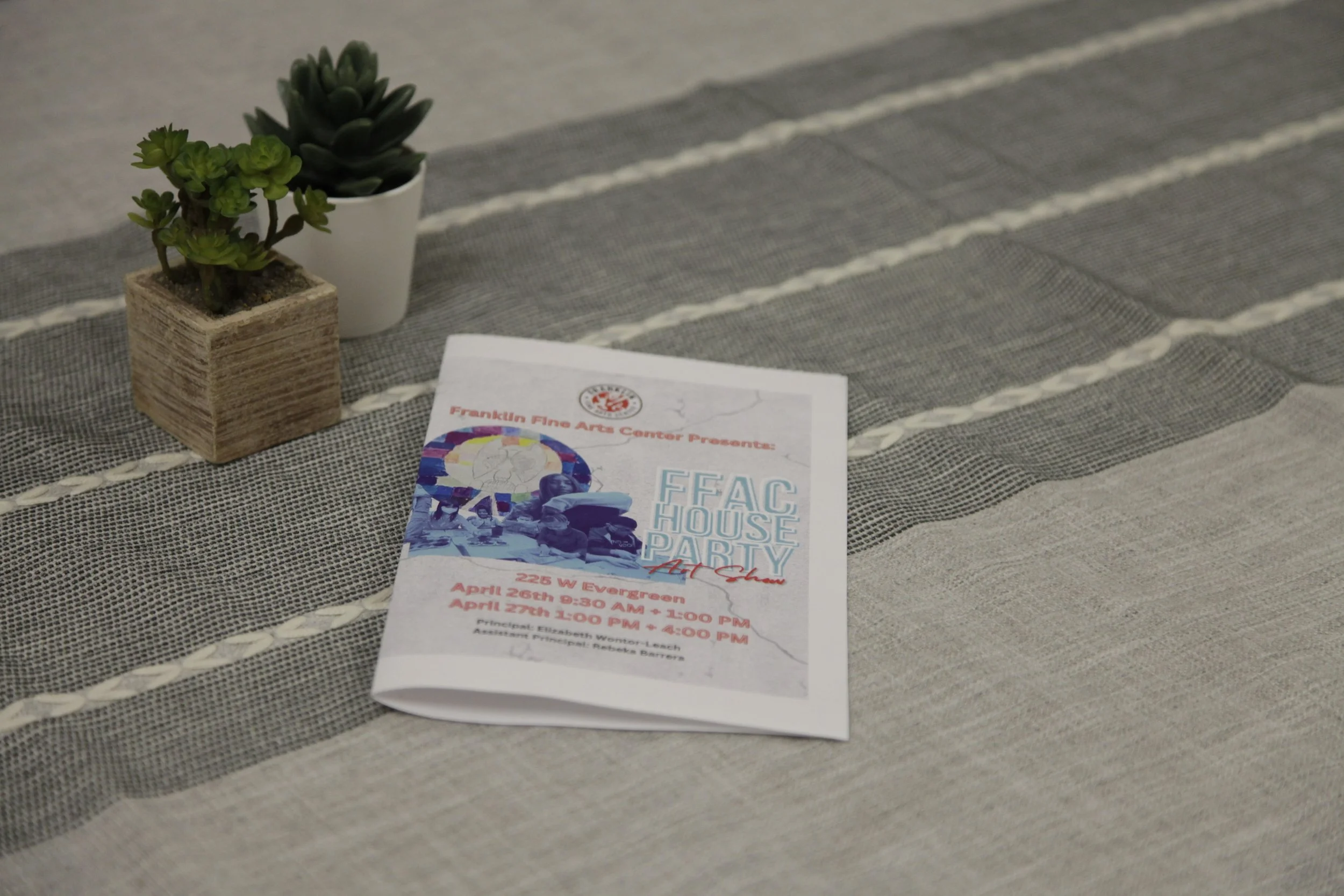



House Party
Preview of a portion of the curated show, House Party (2023) which featured over 200 art pieces by students in K-8 responding to the history of House music as well as local Chicago artists. This excerpt is part of a 5 min and 35 second video of 8th grade students mixed media performance art piece which included writing, audio, painting, collage, and photography.
Facilitation/
Teaching
Images feature work developed primarily with K-8 students.




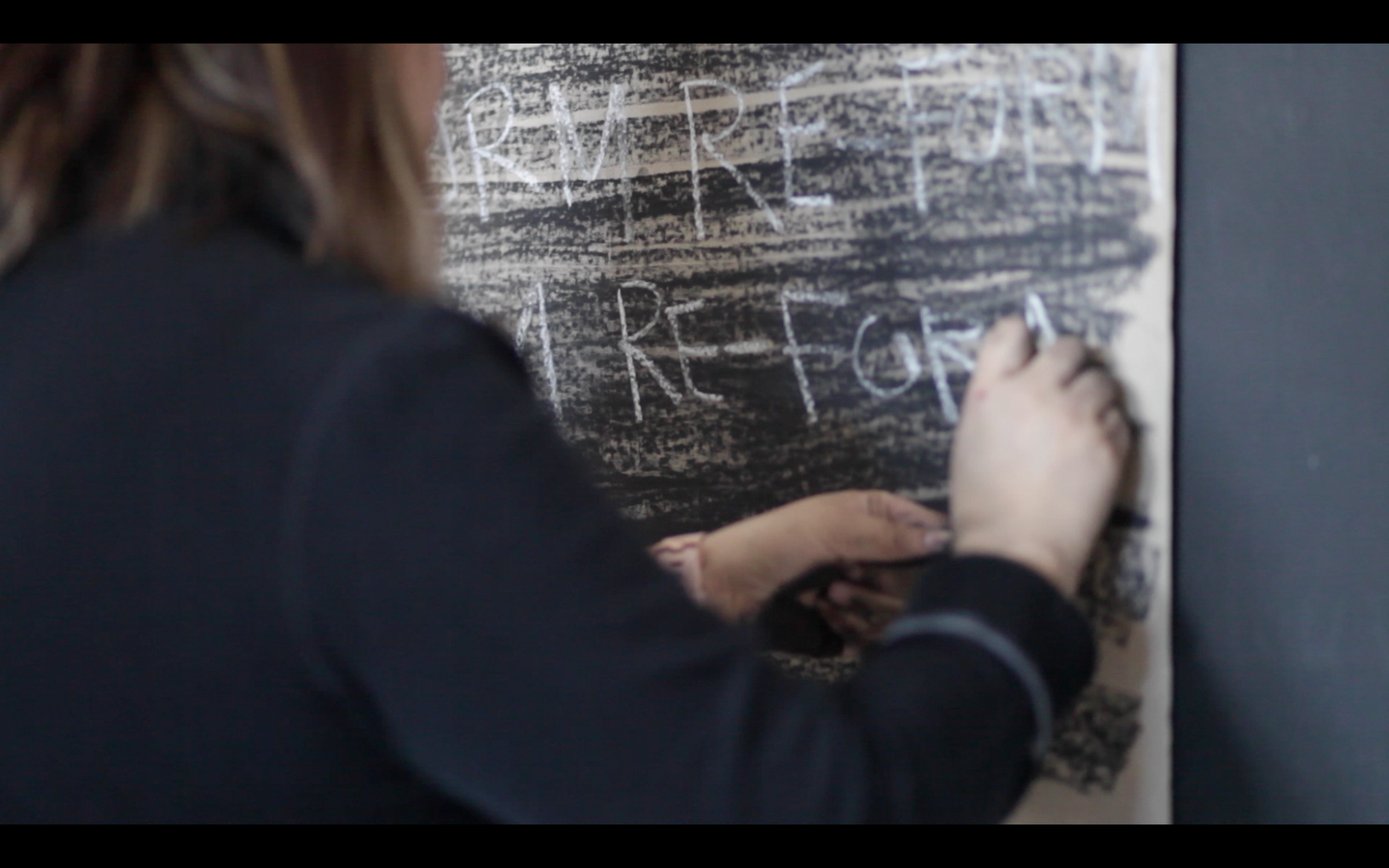
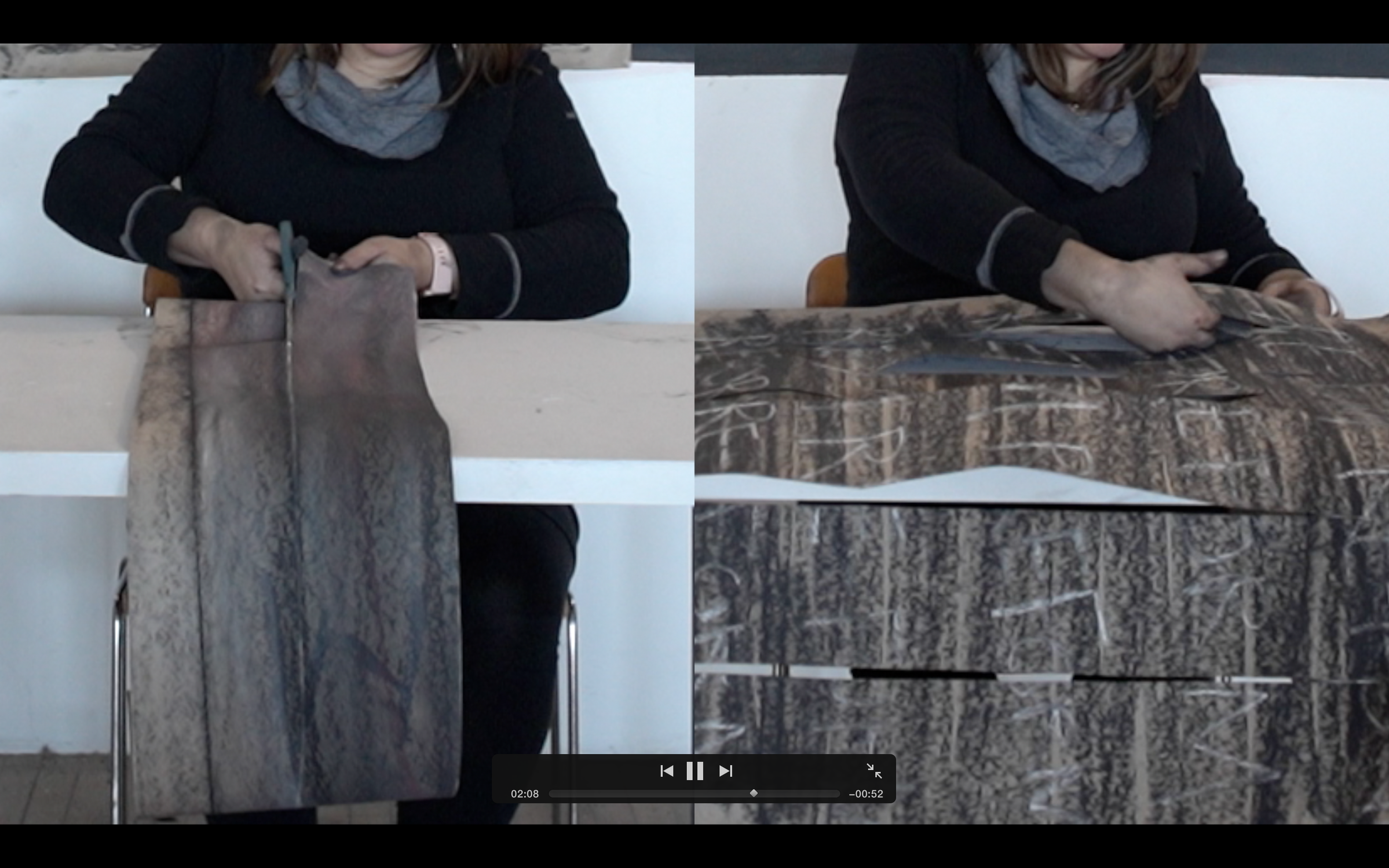
As part of the Illinois Humanities Envisioning Justice Rapid Response Re: Form, I created a response reflecting Pritzker’s recent signing of the criminal justice omnibus reform bill HB-3653 and its implications on historically hypercriminalized and surveyed communities of color.
In her talk, The Fallacy of Prison Reform, Angela Davis discusses the meaning of freedom by posing the following questions: “What if the system cannot be fixed? What happens if we recognize the history of the prison is precisely the history of attempts to fix the system? The history of the prison is the history of prison reform--the prison itself was a reform introduced around the turn of the 19th century as a way of expressing that punishments--corporal, capital and corporal punishments were undemocratic.”
What is it that we have a right to demand? What is a demand? Is the right to freedom a demand or a simple basic human experience and living right? What are the possibilities of breaking something down? What happens when these metaphorical and physical walls of detention and punishment are gone? What takes their place? What doesn’t take its place and instead give us space to create?I am always challenged by Assata Shakur's words and poetry: "If I know anything at all is that a wall is just a wall and nothing more at all, it can be broken down.” How can understanding where things come from and where they might go allow us to either interrupt or learn from it? What walls—physical and metaphorical will we work to tear down and what spaces will we work to sustain?
Re-Form, Illinois Humanities Envisioning Justice, 2021
RE-FORM, part of the Envisioning Justice Rapid Response Series was created by Illinois Humanities and included short original videos featuring perspectives and reflections from humanists, artists, and community organizers working in system-impacted communities during this complex time. Governor J.B. Pritzker’s recent signing of the criminal justice omnibus reform bill HB-3653 has been subject to a wide spectrum of responses as many continue to learn about the bill’s potential implications on Illinoisans and the pursuit toward a more just criminal legal system.
In light of this, Rapid Response: RE-FORM asked contributors to share their perspectives on the long-debated topic of criminal justice reform and what the term has meant to those dedicated to changing — or abolishing — our current systems of punishment, incarceration, and community safety. Rapid Response: RE-FORM will explore these questions:
What impact has reform legislation historically had on movements for long-term and progressive systemic change?
How is the notion of “re-forming”(amending or removing flaws from a given structure) both fundamentally alike and different from the advocacy for a complete dismantling and replacement of our current systems?
What comes after HB-3653 and reform bills like it are signed into law?
Here to weigh in:
ANGEL BAT DAWID
GABRIELA JUAREZ
JAMES KILGORE
KY AJAYI
NAJEE ZAID SEARCY
PO’ CHOP
RENALDO HUDSON
SILVIA INES GONZALEZ
Hosted by TYREECE WILLIAMS and JANE BEACHY
Technical Direction by TONY SANTIAGO
More information on RE-FORM: https://ilhumanities.org/events/envisioning-justice-rapid-response-re-form
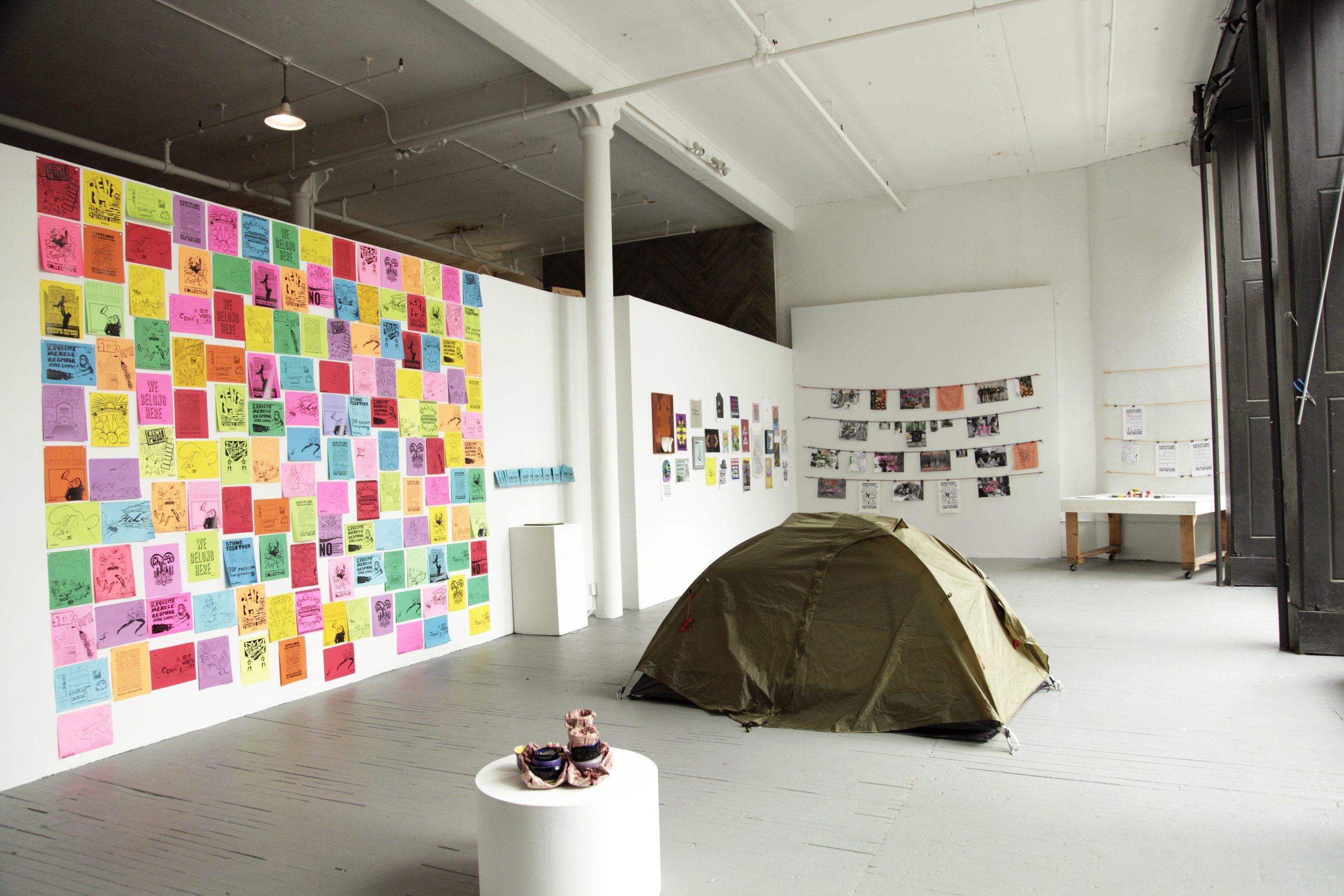





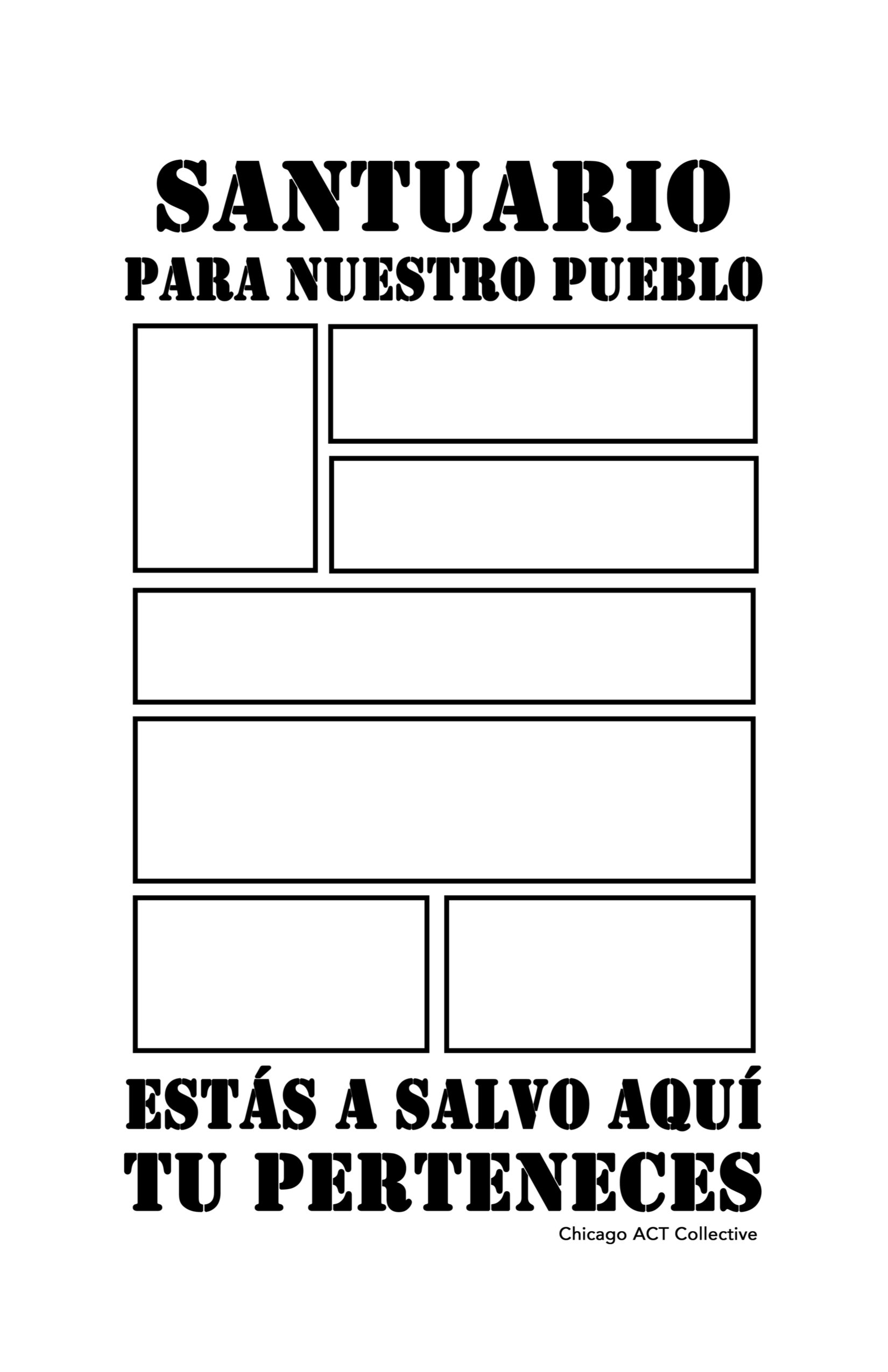










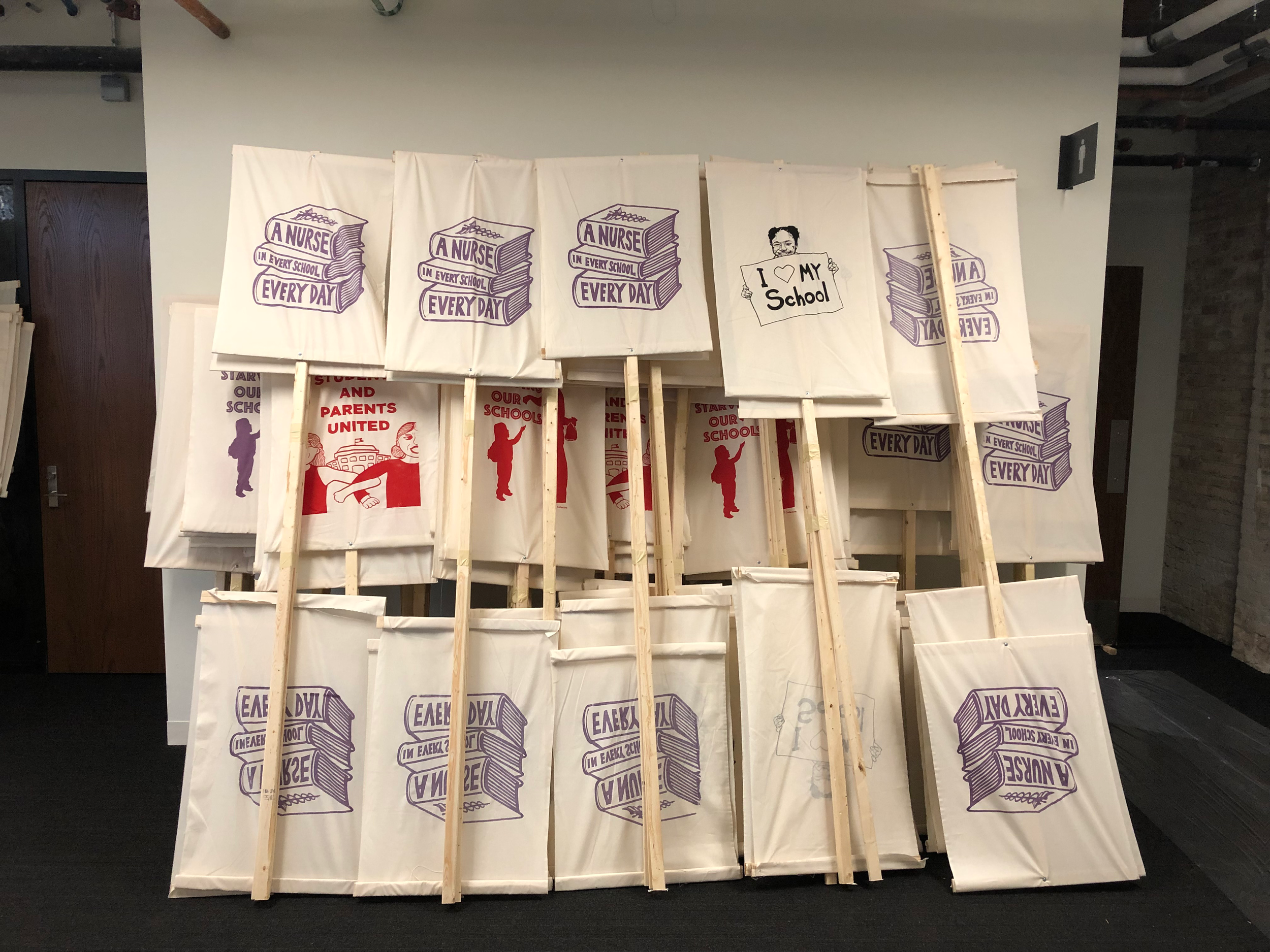







The Chicago ACT (Artists Creating Transformation) Collective
The Chicago ACT Collective builds political artistic collaboration and dialogue across multiple communities. We aim to generate work that both reflects and responds to current local needs identified by those most directly impacted. The Collective enacts self and community care through art-making.

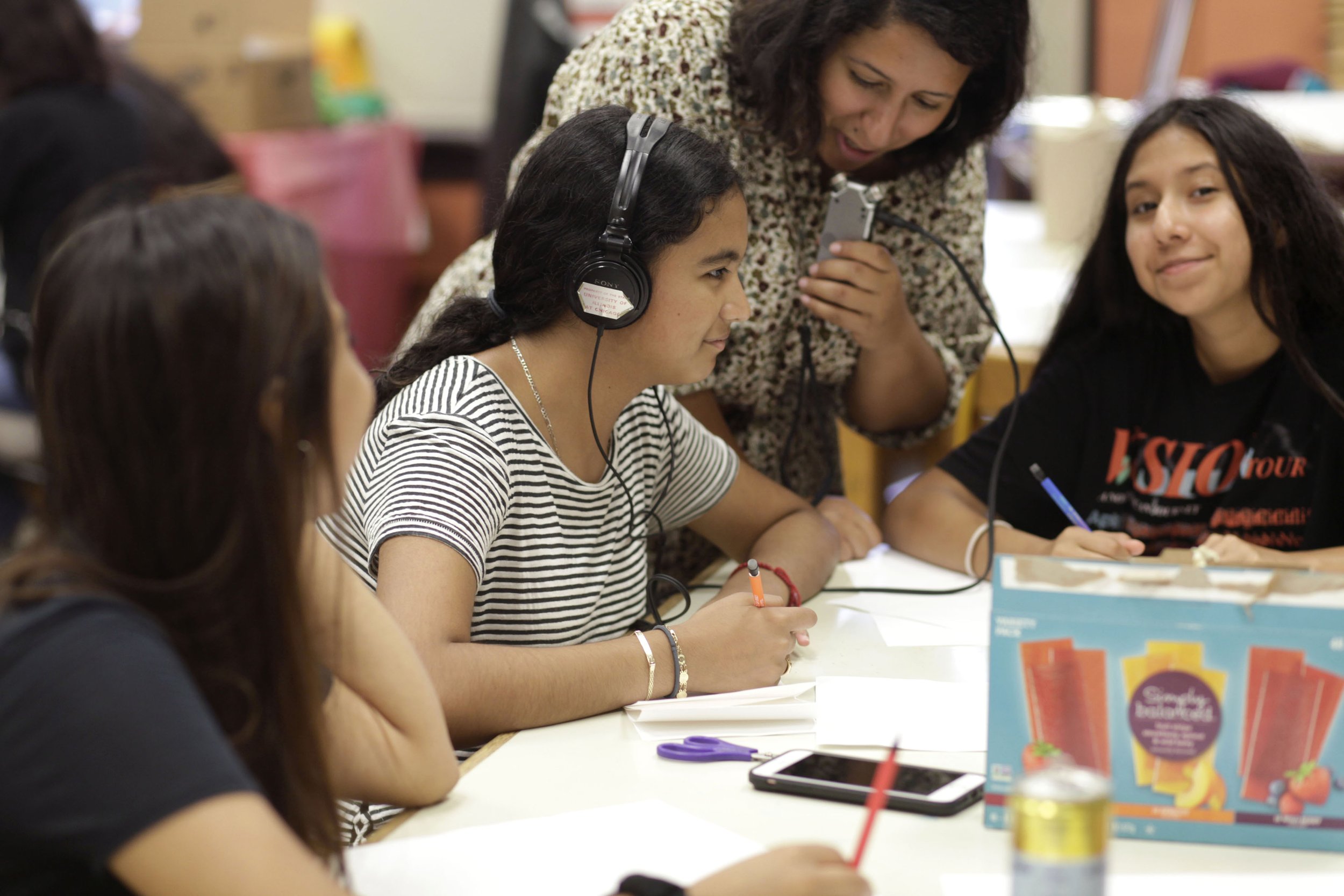

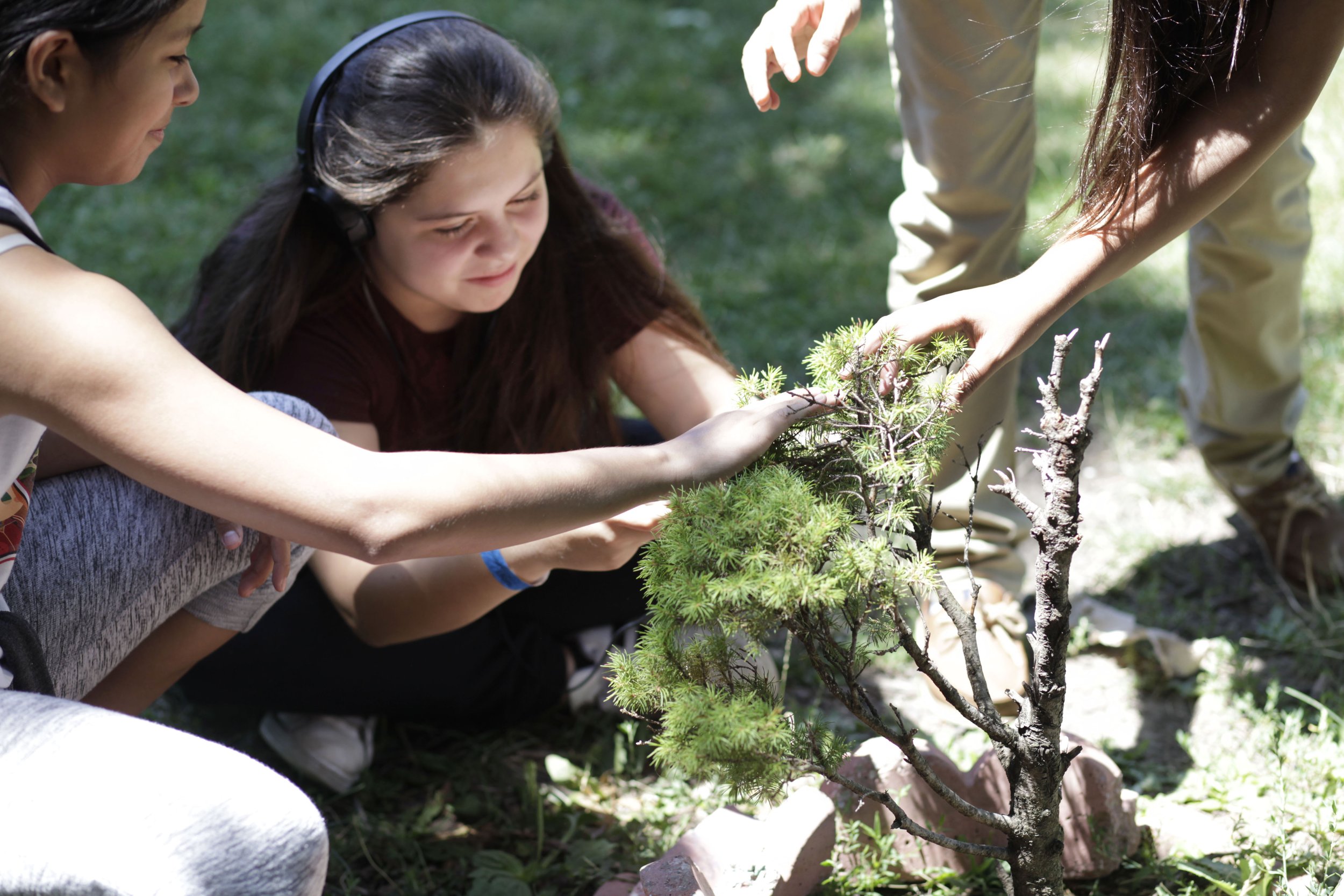

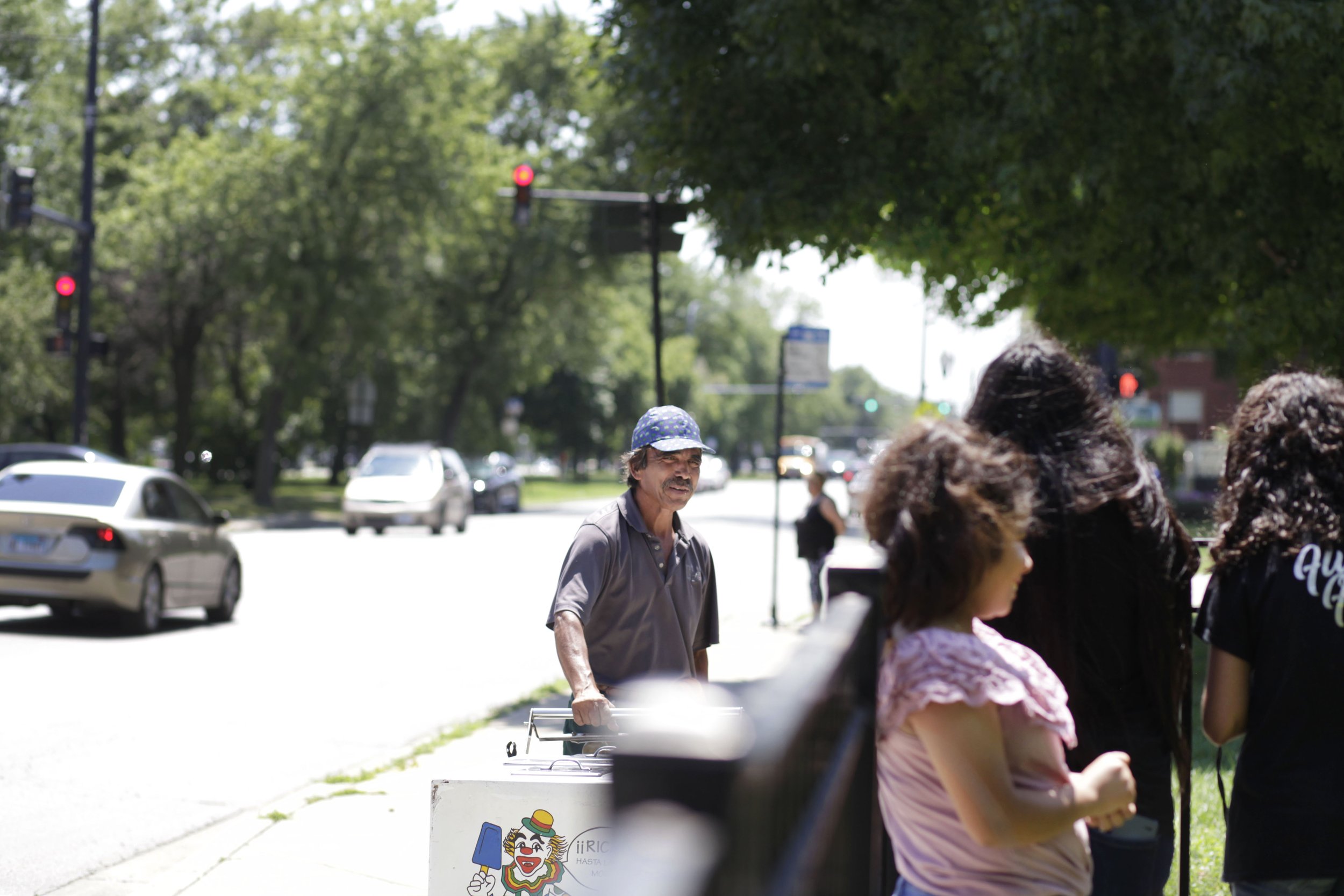
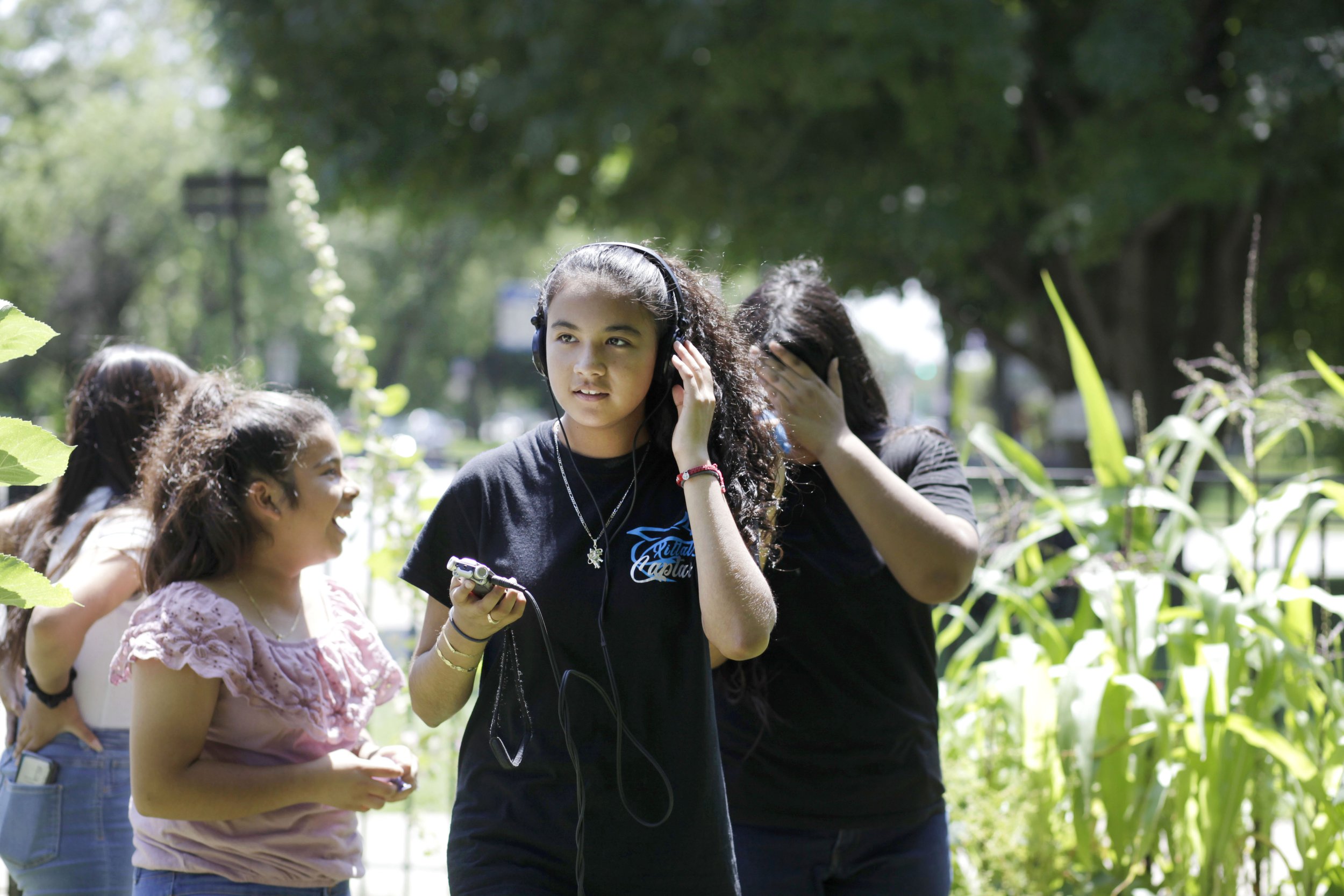

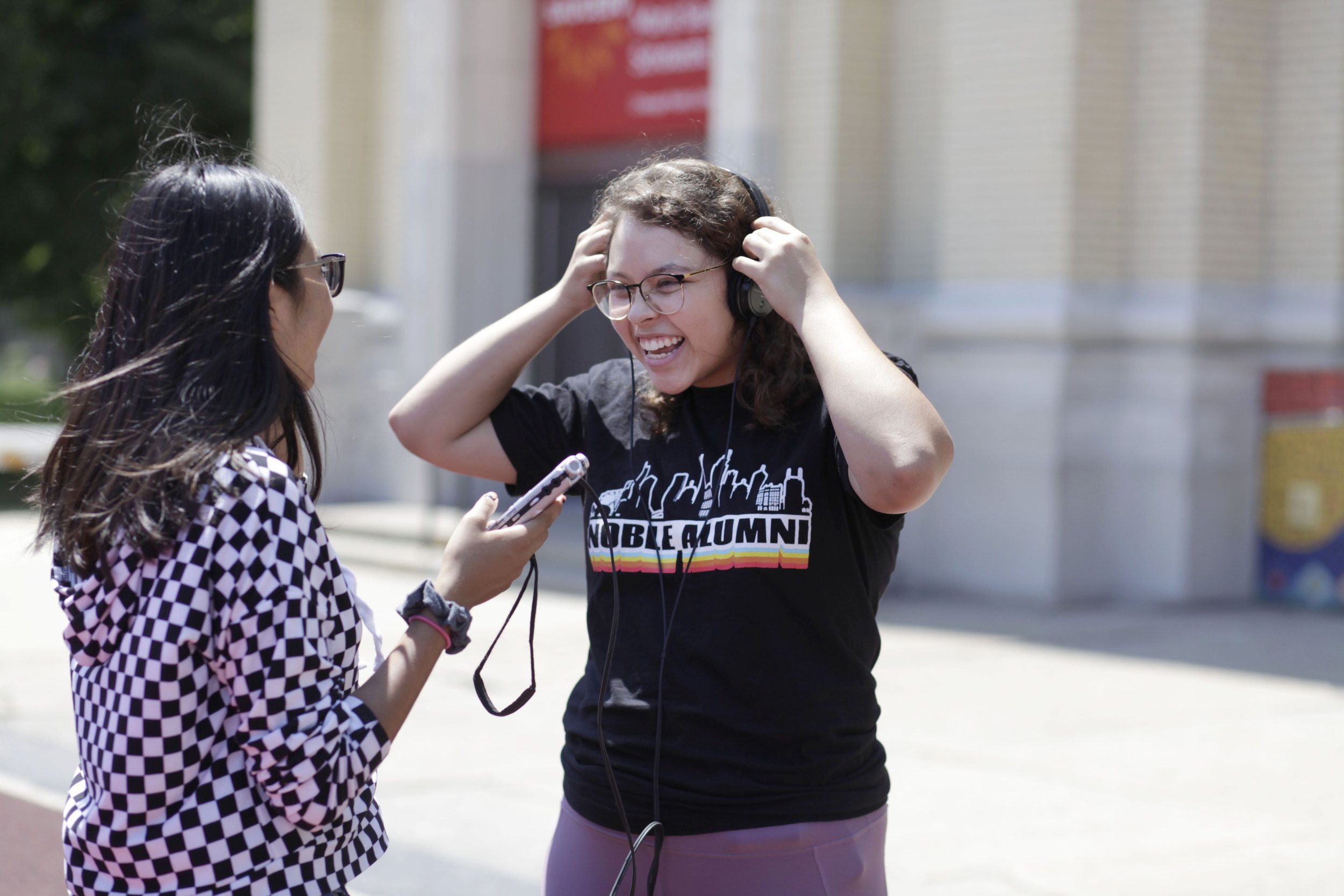
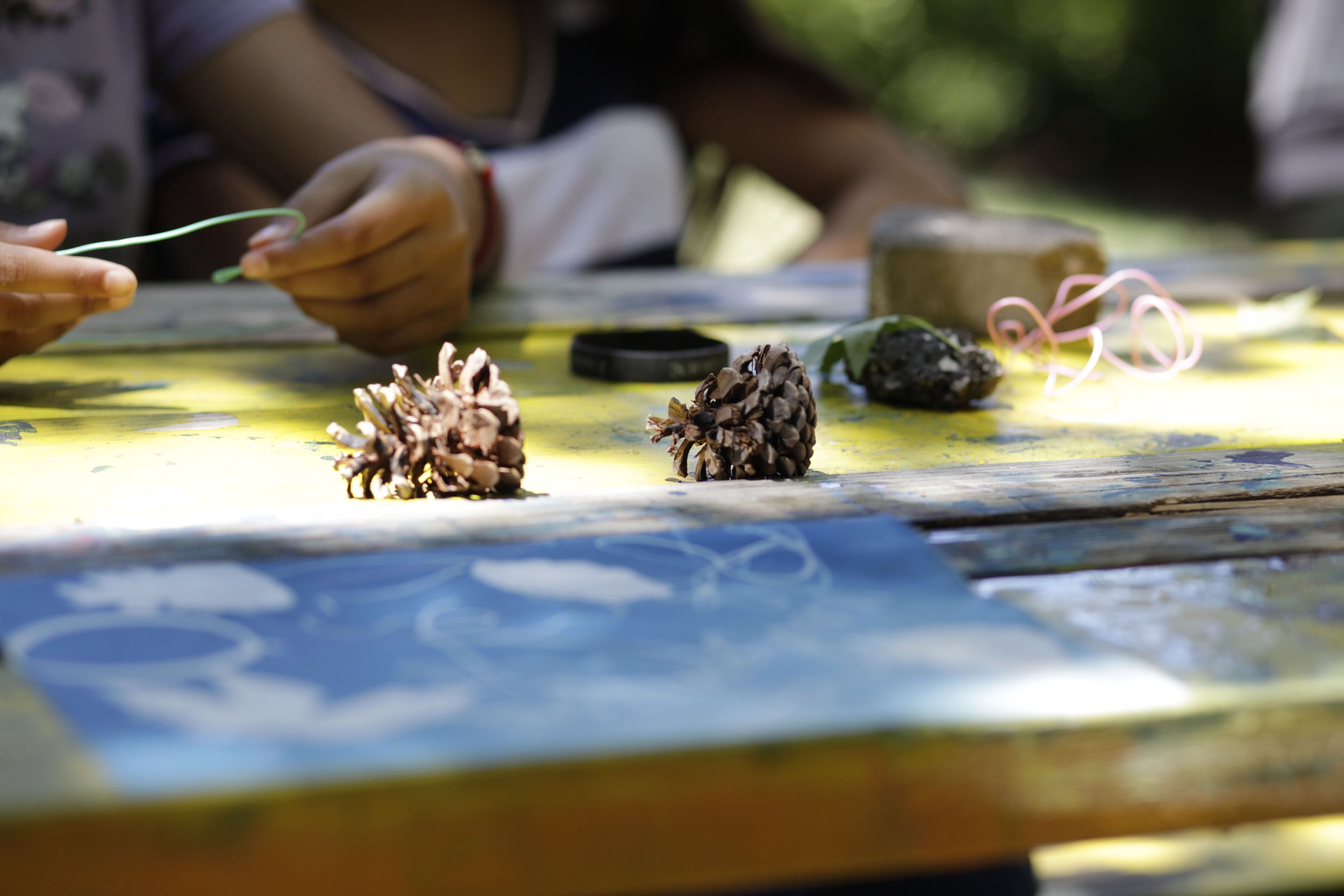
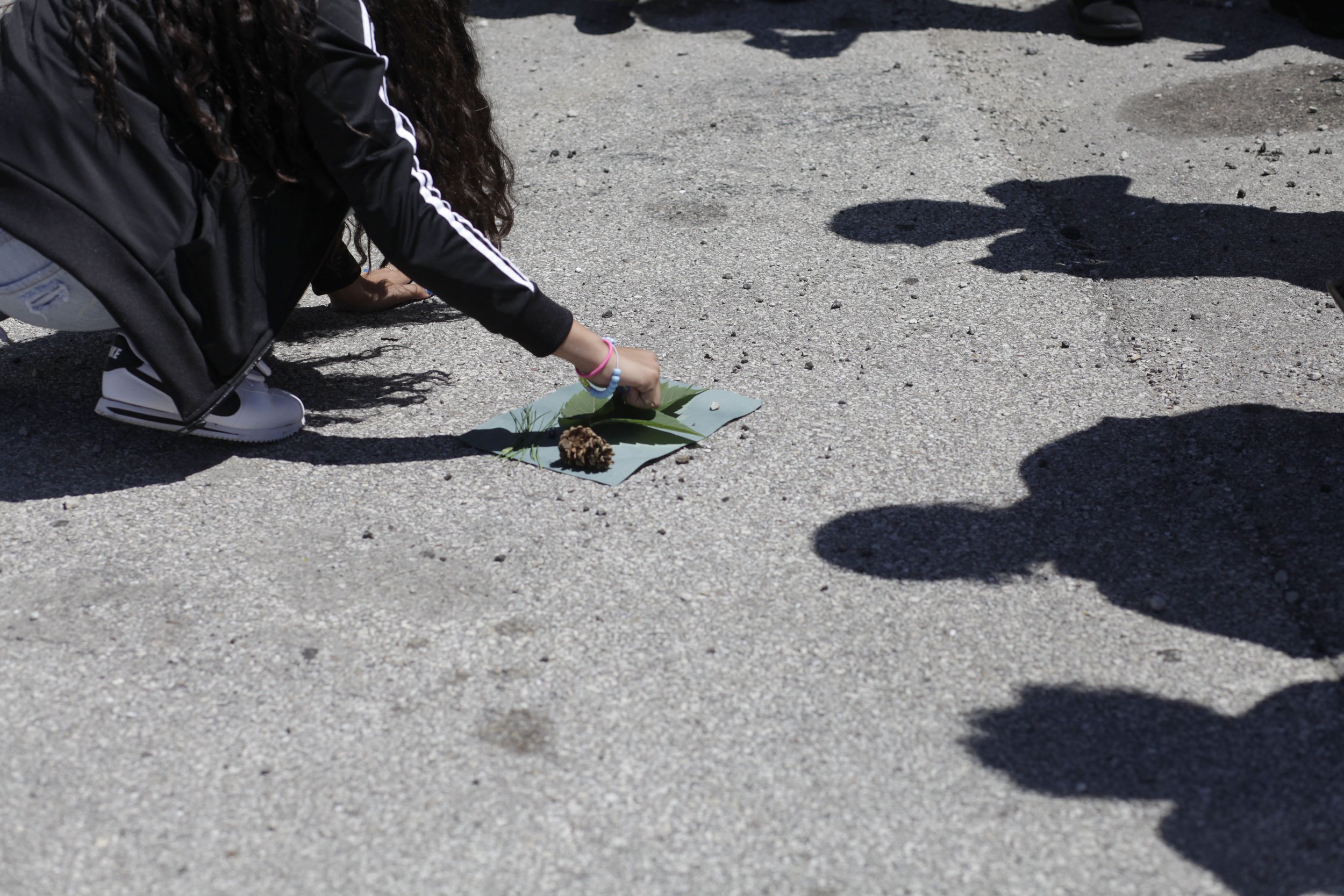

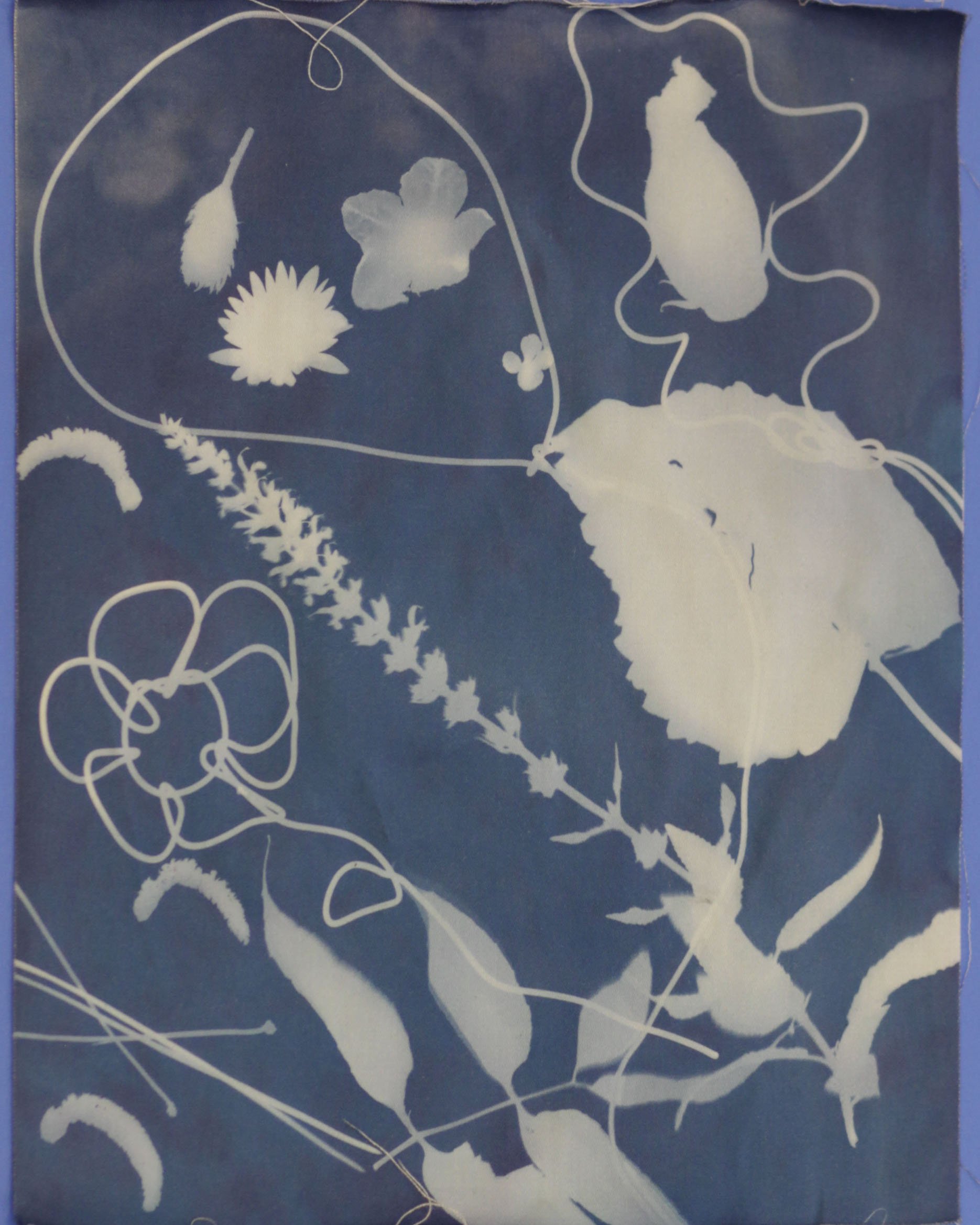


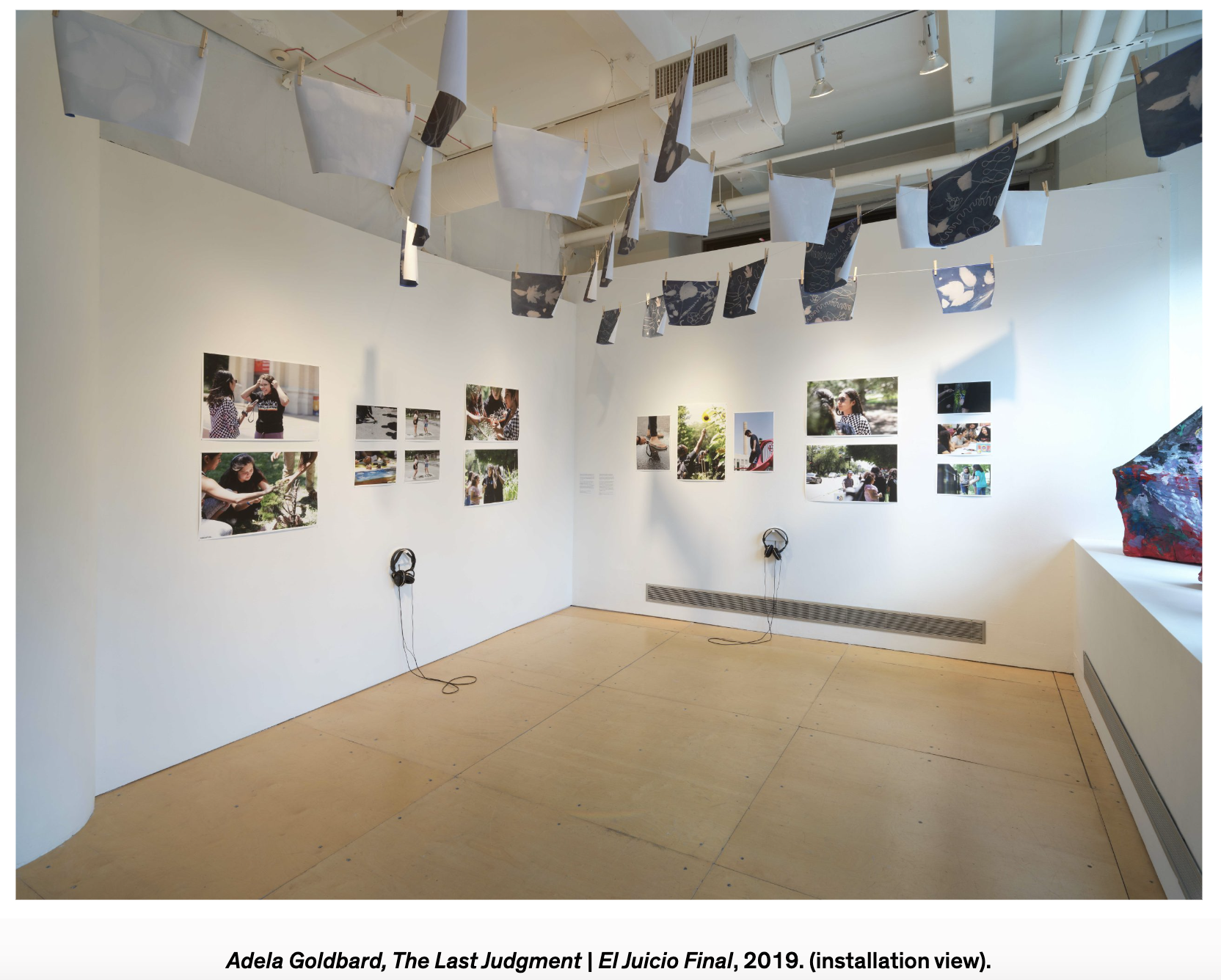
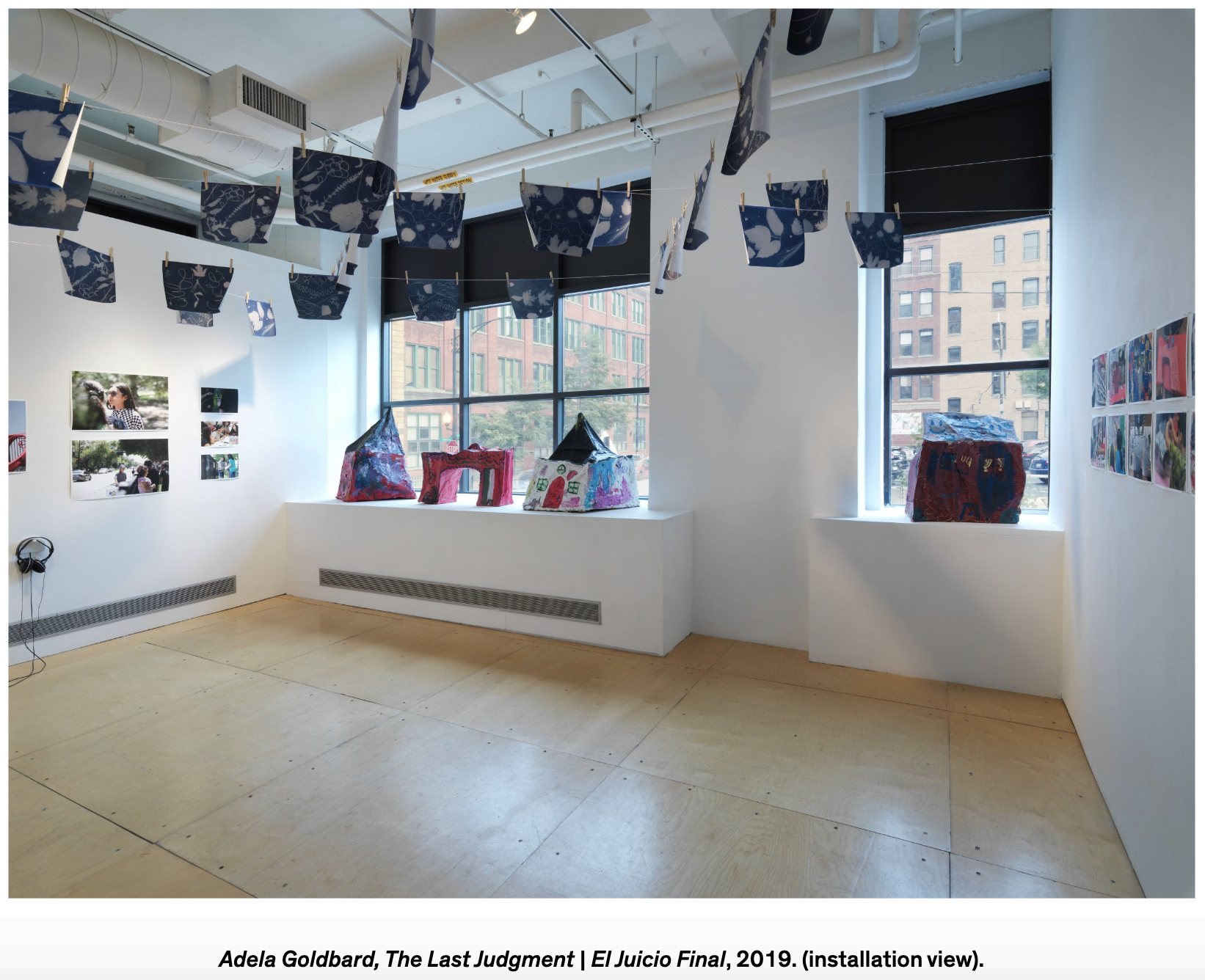
Say. Something.
Workshop series description:
How do we listen? What do we hear? What sounds make up our community? If Little Village was an iconic sound, what sound would it be? If the sound of your community were a color, what color would it be? How can your individual experience of where you are from inform a larger narrative about your community?
As part of a collaboration between Telpochcalli Community Education Project (TCEP), Adela Goldbard, and Silvia Gonzalez, youth were invited to consider how the space that makes up a community is formed through individual experience and collective memory. Through various exercises and games, youth were invited to tune into the auditory details that shape their memories of the environment’s details and their engagement with it.
Workshop facilitation, audio collage, and photography by Silvia Inés Gonzalez
Gallery 400 + TCEP + Adela Goldbard
Exhibition curated by: Lorelei Stewart
Teaching artists: Silvia Inés Gonzalez, William Estrada, Juan-Carlos Perez
Pyrotechnic play directed by: Adela Goldbard
Script: Adela Goldbard, Pedro Antonio García
Produced by: Adela Goldbard, Hadley Austin, Lorelei Stewart
Fabrication of structures: ARTSUMEX Collective (Jesús Sanabria, Amauri Sanabria, Eduardo Pérez, Víctor Rojas)
Sound Design: Rogelio Sosa
Production Assistant: Marcela Torres, Li-Ming Hu
Cinematography by: Yoni Goldstein
Special Effects: Cesar Benitez, 5Alarm
Fireworks Stage Manager: Sarah Skaggs
Lighting Designer: Mike Durst
Major support for The Last Judgment / El Juicio Final was provided by The Joyce Foundation as a 2019 Joyce Award and by Fondo Nacional para la Cultura y las Artes (Mexico).
Additional support was provided by the Andy Warhol Foundation for the Visual Arts; Illinois Humanities; the School of Art & Art History, the College of Architecture, Design, and the Arts, University of Illinois at Chicago; the Illinois Arts Council, a state agency; and the Chicago Park District.
Agradecemos al Sistema de apoyos a la creación y a proyectos culturales (Fonca) el estímulo proporcionado para la realización de este video.
More information on The Last Judgement/Juicio Final: https://adelagoldbard.com/portfolio/juiciofinal/ and https://gallery400.uic.edu/exhibition/adela-goldbard-the-last-judgment-el-juicio-final/











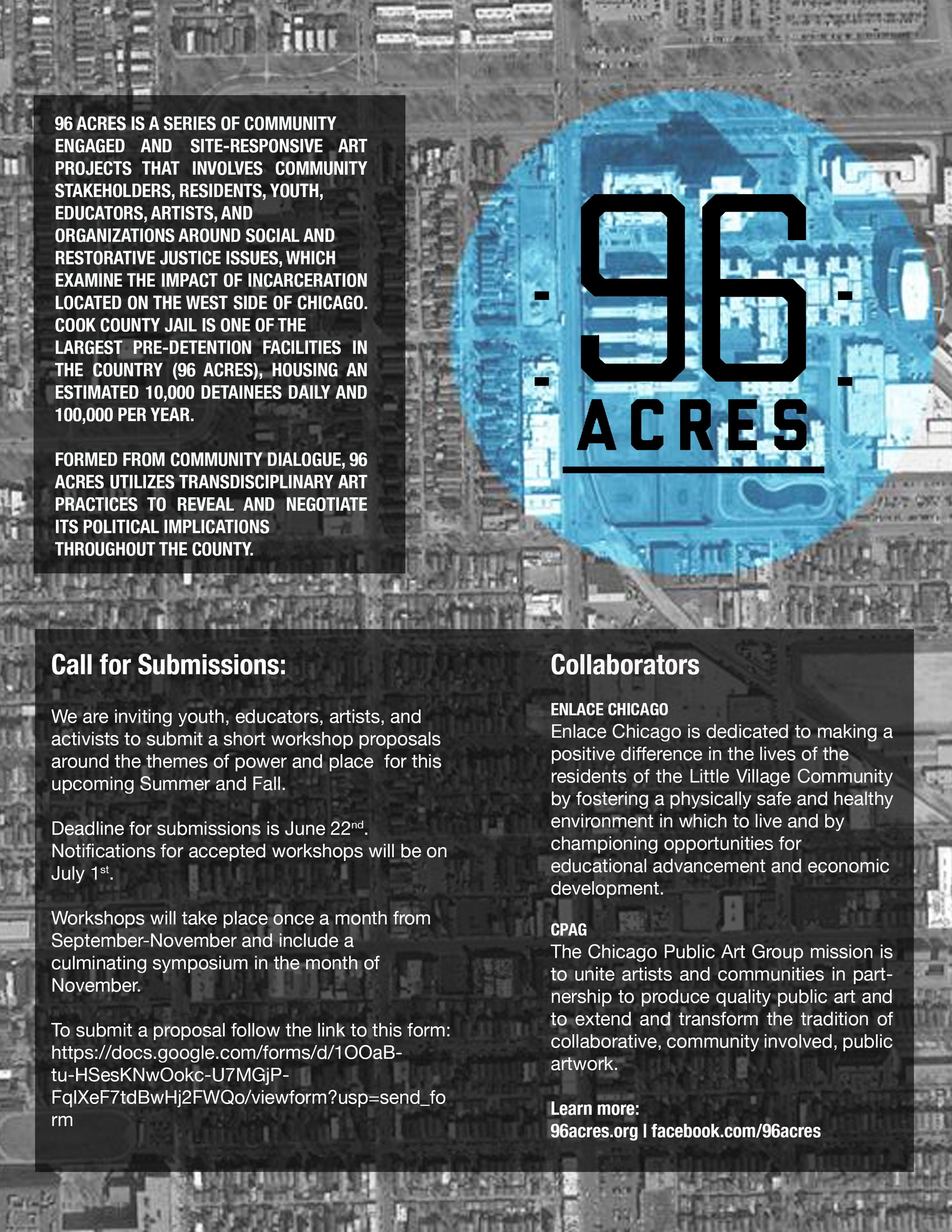

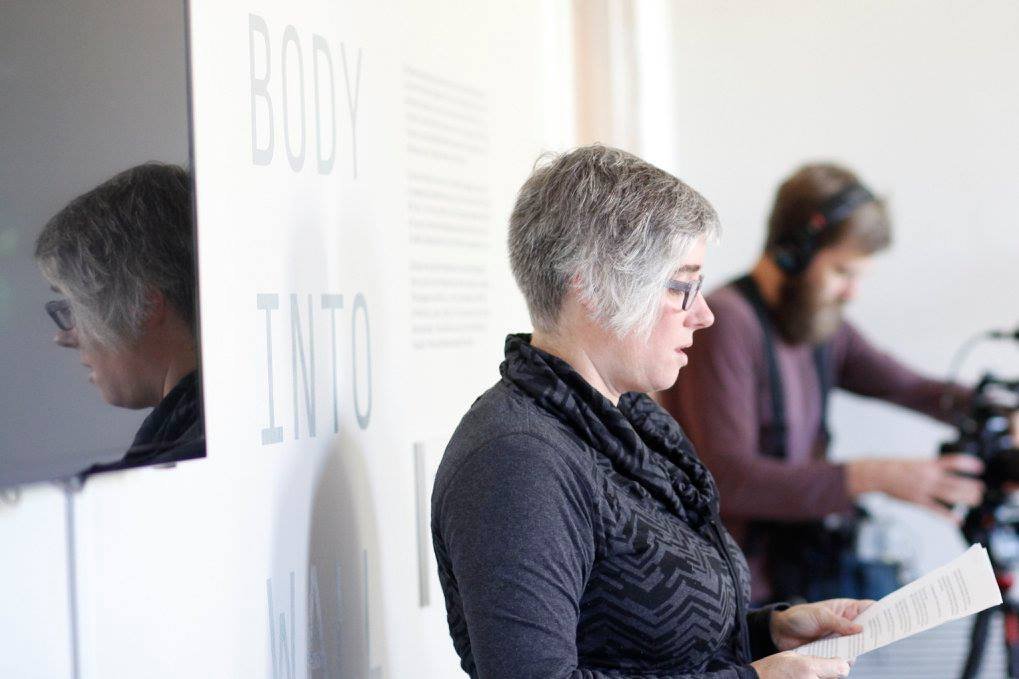
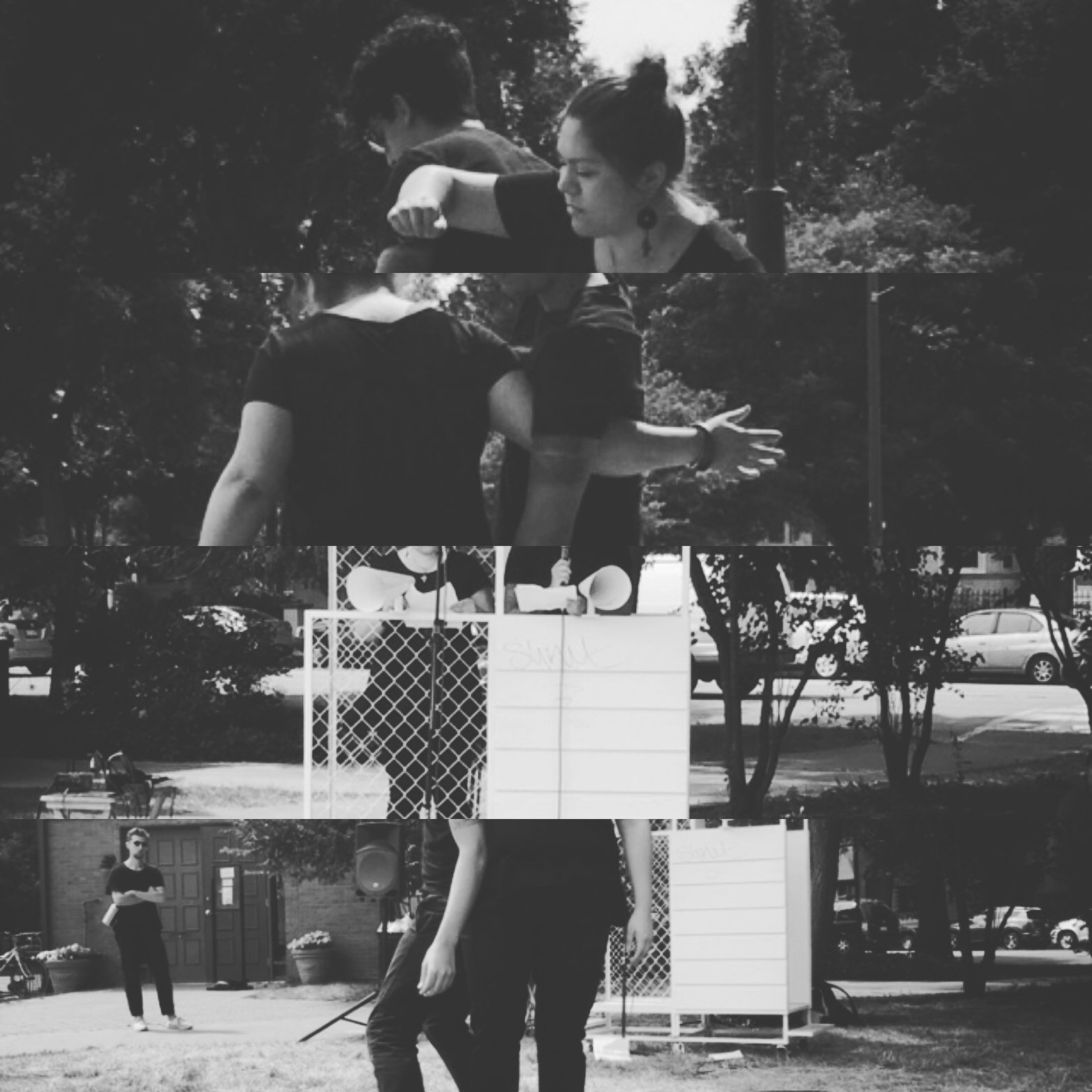


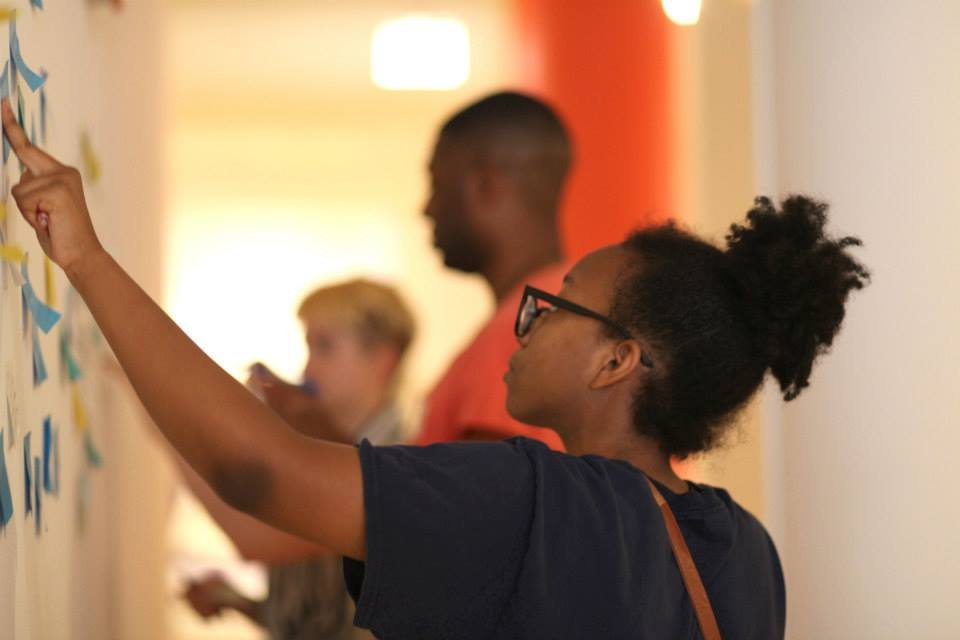
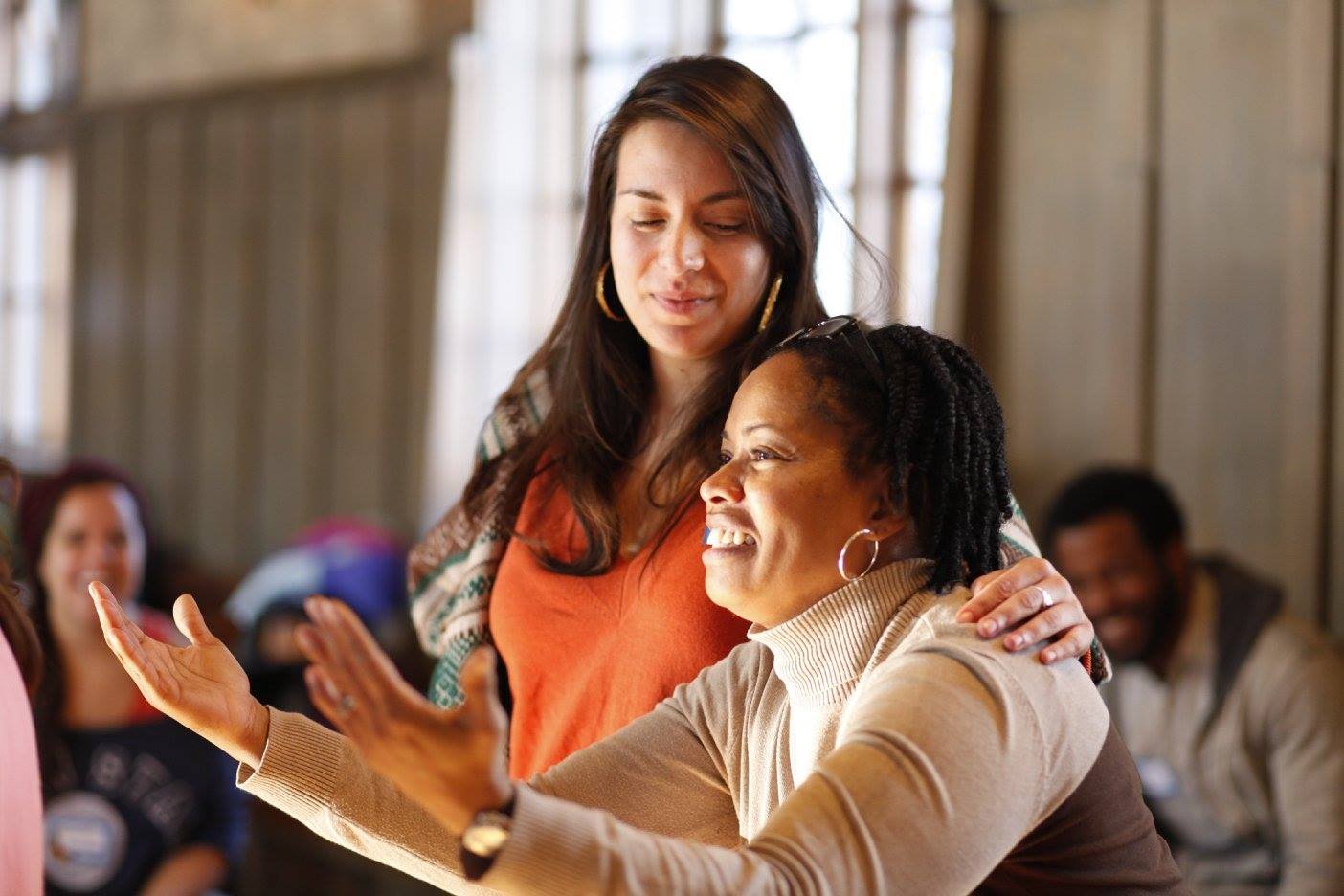

The 96 Acres Project
96 Acres Project (2012-2016) was a series of community-engaged, site-responsive art projects that involved community stakeholders’ ideas about social and restorative justice issues and examined incarceration's impact at the Cook County Jail on Chicago’s West Side and beyond. Begun by Maria Gaspar with many community partners in 2012, it used multi-disciplinary art practices to explore incarceration's social and political implications on communities of color. 96 Acres Project and its collaborators aimed to generate alternative narratives reflecting on art, power, and responsibility. Over multiple years, we produced eight site-responsive projects at and around the jail's perimeter that engaged local youth, teachers, activists, artists, families, and local officials. Enlace Chicago served as the central advocate for the project and the Chicago Public Art Group as the fiscal agent.
As part of the education committee, Silvia curated workshops and brought together partners to address issues of incarceration and power. Questions we worked to answer in workshops include: What is power? What is the architecture of power? How can radical play inform our organizing strategies? Zines were created to archive both the workshops and participant responses to those questions. The zines were distributed at places such as Teachers for Social Justice and other community spaces.
More information on the 96 Acres Project: https://mariagaspar.com/96-acres-project
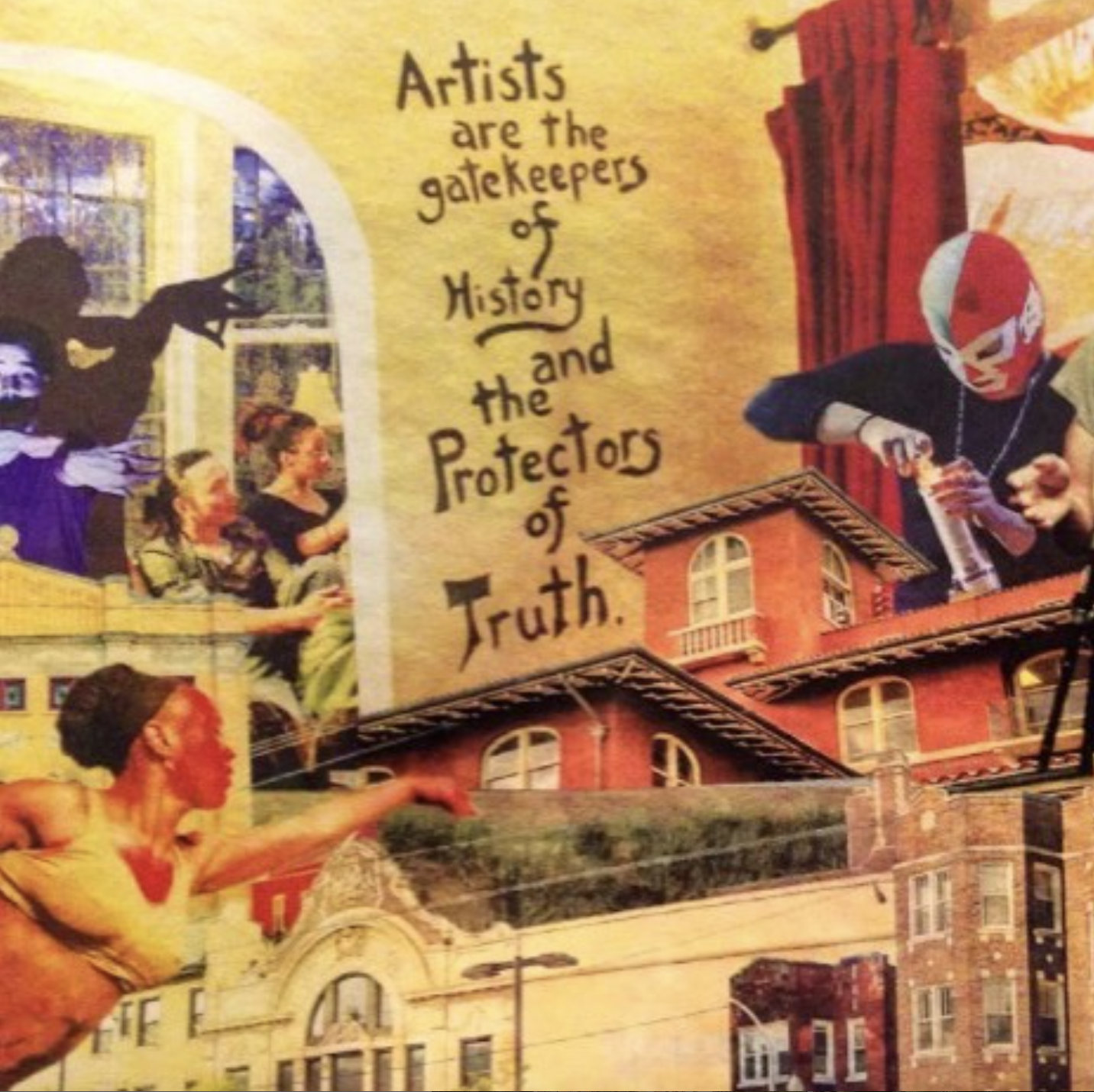


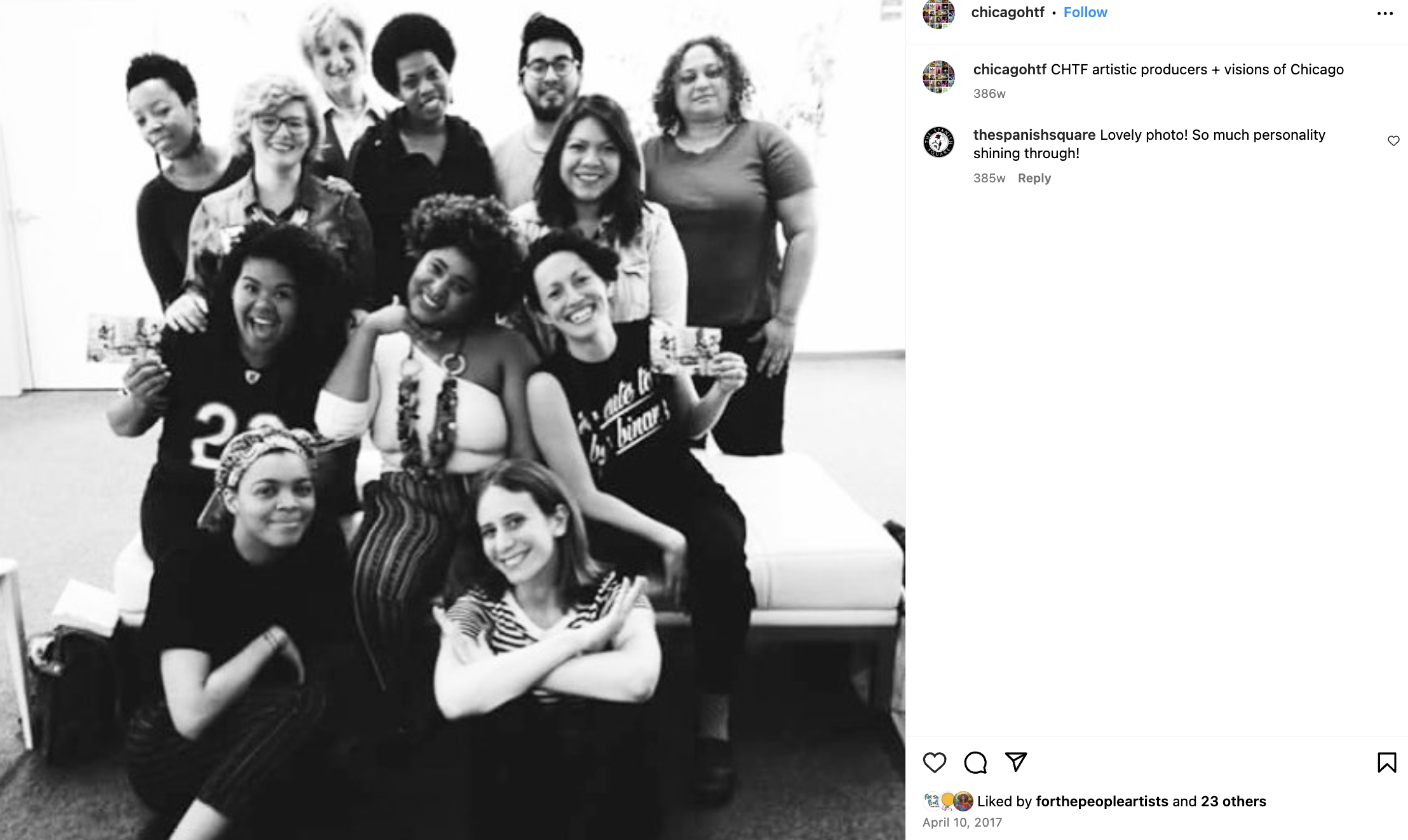
Chicago Home Theater Festival
MISSION
Chicago Home Theater Festival (CHTF) invites strangers into each other’s homes to share a communal meal, experience transformative art, and build intentional community across lines of difference. CHTF centers the leadership of women and femmes, artists of color, immigrants and refugees, LGBTQ folks, and artists with disabilities whose creative practice disrupts injustice and paves cultural safe passages across our hyper-segregated city.
VISION
Since its inception in 2012, CHTF has organized over 500 artists and 5,000 neighbors in over 25 distinct neighborhoods and public parks. In its fifth year, CHTF is focused on three concrete goals: 1) building creative capacity within neighborhoods that have experienced disinvestment, 2) creating access for artists and audiences across the spectrum of race, gender, sexuality, and ability, and 3) curating performances and conversations that create possibilities for personal, social, and structural transformation.
ROLE
Curator + Performer